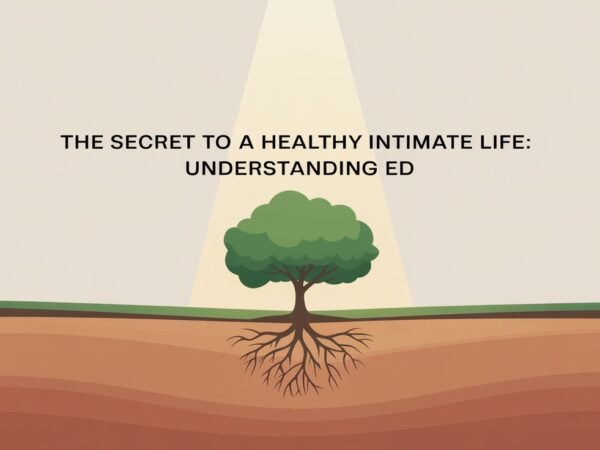In a world driven by constant change and relentless pursuit of more, it’s easy to overlook the value of what we already possess. The adage “love what you have, before life teaches you to lov – tymoff” is a poignant reminder to appreciate the present and find contentment in our current circumstances. This article explores the profound wisdom behind this saying, emphasizing the importance of gratitude, the dangers of perpetual dissatisfaction, and practical ways to cultivate a mindset of appreciation.
The Essence of Gratitude
Gratitude is a powerful emotion that transcends mere thankfulness. It acknowledges the goodness in our lives, often independent of our material possessions or social status. Embracing gratitude involves recognizing the small joys and blessings that often go unnoticed in our daily hustle. Scientific studies have shown that practicing gratitude can lead to numerous benefits, including improved mental health, enhanced relationships, and overall life satisfaction.
Love what you have before life teaches you the hard way. We often chase after bigger things and forget the good we already have. It’s important to appreciate your relationships, work, and personal growth now. Don’t wait until it’s too late. If schoolwork is stressing you out, you can pay for paper creation to free up time. This way, you can focus on what really matters in life. Instead of worrying about deadlines, you’ll have more time for the things that make you happy. Keep things simple and enjoy the present!
One of the fundamental aspects of loving what you have is developing a grateful heart. This means consciously shifting our focus from what we lack to what we already possess. For instance, instead of yearning for the latest gadget, we can appreciate the functionality and reliability of our current devices. Doing so trains our minds to find joy in the present moment, reducing the constant craving for more.
The Perils of Perpetual Dissatisfaction
In our consumer-driven society, there’s a pervasive belief that happiness is just one purchase away. Advertisements constantly bombard us with messages that suggest we need the latest products to be truly content. This culture of comparison and competition fosters a sense of perpetual dissatisfaction, where no matter what we acquire, it never seems enough.
Perpetual dissatisfaction can lead to a vicious cycle of seeking external validation and fleeting pleasure. When we fail to appreciate what we have, we often find ourselves trapped in an endless quest for more possessions, achievements, and recognition. This insatiable desire can lead to chronic stress, anxiety, and even depression as we chase an elusive ideal that never truly fulfills us.
Understanding the dangers of this mindset is crucial for breaking free from its grasp. By recognizing that happiness and contentment come from within, we can shift our focus away from external acquisitions and towards internal fulfillment.
Cultivating a Mindset of Appreciation
Cultivating a mindset of appreciation requires intentional effort and practice. It begins with small, daily acts of mindfulness and gratitude. Here are some practical steps to help you love what you have before life teaches you to love:
- Practice Daily Gratitude: Start a gratitude journal where you write down three things you are thankful for daily. This simple practice can help you recognize and appreciate the positive aspects of your life, no matter how small.
- Mindfulness Meditation: Incorporate mindfulness meditation into your routine. This practice encourages you to stay present and fully engage with the current moment, fostering a deeper appreciation for your surroundings and experiences.
- Limit Comparisons: Reduce exposure to social media and other platforms promoting comparison. Instead, focus on your unique journey and achievements, celebrating your progress and growth.
- Savor Simple Pleasures: Take time to savor the simple pleasures in life, such as a warm cup of coffee, a beautiful sunset, or a meaningful conversation with a loved one. These moments can bring immense joy and fulfillment.
- Practice Minimalism: Embrace a minimalist lifestyle by decluttering your space and prioritizing experiences over possessions. This approach can help you focus on what truly matters and reduce the constant desire for more.
- Reflect on Achievements: Regularly reflect on your achievements and milestones. Acknowledge the hard work and effort that went into reaching your goals, and take pride in your accomplishments.
Lessons from Life’s Challenges
Life has a way of teaching us lessons through challenges and adversities. Often, during difficult times, we realize the actual value of what we have. Illness, loss, or unexpected hardships can strip away our superficial desires and bring into sharp focus the things that genuinely matter—health, relationships, and inner peace.
These experiences can be profound teachers, reminding us to appreciate the present and cherish our loved ones. However, waiting for life to force these lessons upon us can be a painful and arduous journey. By proactively embracing a mindset of gratitude and appreciation, we can learn these valuable lessons without the need for such drastic wake-up calls.
The Role of Relationships
Our relationships are pivotal in shaping our sense of contentment and fulfillment. Loving what you have extends beyond material possessions to encompass the people in your life. Strong, supportive relationships are often the foundation of your happiness and well-being.
Investing time and effort in nurturing these connections can significantly enhance our life satisfaction. This involves expressing gratitude for the people we care about, being present in our interactions, and offering support and understanding during both good times and bad.
By appreciating our relationships, we create a network of love and support that enriches our lives and provides a buffer against any challenges we may face.
Embracing Impermanence
One of the most profound aspects of loving what you have is embracing the concept of impermanence. Everything in life is transient, and nothing remains constant. Understanding this can help us develop a deeper appreciation for the present moment and the people and things we currently have.
Impermanence teaches us not to take anything for granted. It encourages us to savor our moments and be fully present in our experiences. This perspective can transform our approach to life, making us more mindful and appreciative of the fleeting beauty surrounding us.
Conclusion
The wisdom encapsulated in the saying “love what you have, before life teaches you to lov – tymoff” is a timeless reminder of the importance of gratitude and contentment. In a world that often prioritizes more, bigger, and better, it urges us to pause and appreciate the present. We can find lasting happiness and fulfillment by cultivating a mindset of appreciation, nurturing our relationships, and embracing impermanence.
Ultimately, loving what we have is not about settling for less but recognizing the abundance in our lives. It is about shifting our focus from external validation to internal satisfaction, from constant yearning to peaceful contentment. By doing so, we enrich our lives and inspire those around us to find joy in the present and cherish their blessings.
Do Read: How I Sleep at Night Knowing I’m Failing All My Classes – Tymoff













